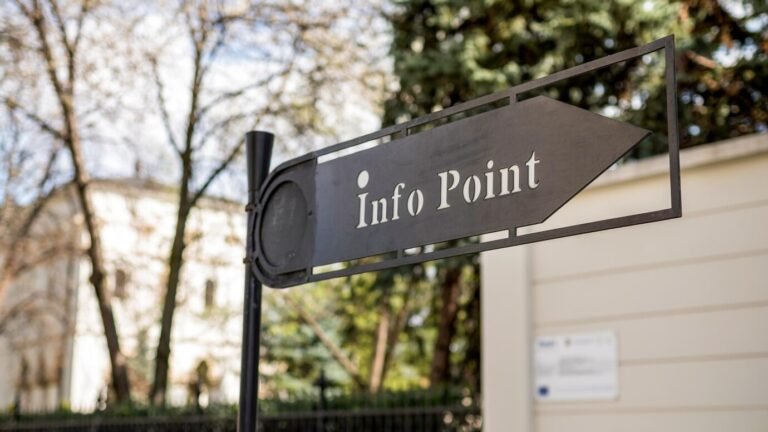Purchasing a home is one of the biggest financial commitments many people will make in their lives. It’s an exciting, yet sometimes overwhelming, process that involves many moving parts, from financing to finding the perfect location. However, before signing that final agreement, one crucial step can significantly impact the security of your investment—home inspectors Greeley CO.
Home inspectors play an essential role in ensuring that the property you’re considering is safe, functional, and worth the investment. Their job is to identify issues you might not have noticed and provide an objective evaluation of the property’s condition. In this article, we’ll delve into the vital role home inspectors play in ensuring you make a safe investment in your future home.
What Exactly Do Home Inspectors Do?
A home inspector is a trained professional who evaluates the condition of a property. They are experts in identifying potential risks, defects, and other problems that could affect the safety or value of the home. The goal of a home inspection is to help you, as a buyer, understand what you’re getting into before finalizing the purchase.
Typically, home inspectors will examine:
• The foundation and structure of the home
• The roof and attic
• HVAC systems (heating, ventilation, and air conditioning)
• Plumbing and electrical systems
• Insulation and ventilation throughout the home
• The exterior including windows, doors, and siding
• Interior elements such as flooring, walls, and ceilings
By thoroughly inspecting the property, a home inspector will identify any issues that need to be addressed, whether it’s a simple repair or something more serious.
Why Are Home Inspectors Crucial to Your Home-buying Journey?
You may be wondering, “Why can’t I just skip the home inspector and take my chances?” Here are some key reasons why home inspectors are absolutely essential:
1. Uncover Hidden Issues
Sometimes, what you see on the surface isn’t the whole picture. Home inspectors are trained to spot hidden issues, such as electrical faults, water damage, or foundation problems that aren’t visible during a typical walk-through. They have a keen eye for detecting signs of trouble, saving you from unexpected repair costs down the road.
For example:
• Structural Issues: Small cracks in walls or foundation might seem like a minor aesthetic problem, but a home inspector can spot whether these cracks signal a more significant structural issue.
• Water Damage: Moisture under the floors, in the attic, or behind walls can lead to mold growth and wood rot, costing you thousands to repair.
2. Ensuring Safety
Safety should always be a top priority when purchasing a home. A home inspector will identify safety hazards, such as faulty wiring, improper ventilation, or the presence of dangerous materials like asbestos or lead-based paint. These issues could not only endanger your health but also be extremely costly to remedy.
For example:
• Electrical Wiring: Outdated or improperly installed electrical systems can be a fire hazard, and they can also cause problems with appliances and electronics. A home inspector can assess the condition of the wiring and recommend updates if necessary.
• Radon Levels: Certain areas are prone to high radon levels, a radioactive gas that can increase the risk of lung cancer. A home inspector can recommend specialized radon testing, ensuring the safety of your new home.
3. Saving You Money
The old saying “An ounce of prevention is worth a pound of cure” is certainly true when it comes to home inspections. By hiring a home inspector, you can potentially avoid major expenses in the future. They can identify problems that might cost thousands of dollars to repair—like a failing HVAC system, a leaking roof, or a compromised foundation.
By identifying these issues upfront, a home inspector helps you avoid purchasing a home that may require expensive repairs shortly after you move in. Additionally, if any significant issues are discovered, you can negotiate the price or request that the seller address the repairs before you commit to the purchase.
4. Negotiation Power
The information provided by a home inspector can give you powerful negotiation leverage. If the home inspector finds any major issues, you can either ask the seller to make repairs or reduce the price of the property. This could save you significant money or help ensure that you don’t inherit someone else’s maintenance problems.
In some cases, the inspection might uncover a deal-breaker that causes you to walk away from the transaction altogether. Although this may seem disappointing, it could be a blessing in disguise, saving you from purchasing a property that might have been a financial nightmare.
Key Areas Home Inspectors Focus On
Now that you understand why home inspectors are essential, let’s take a closer look at some of the critical areas they examine during an inspection:
1. Foundation and Structure
A solid foundation is key to the long-term stability of the home. Home inspectors will assess the foundation for any cracks, settling, or shifting that could lead to significant structural problems in the future.
2. Roof and Attic
The condition of the roof is vital to protect the home from water damage. Inspectors will look for signs of leaks, missing shingles, or any deterioration. They will also check the attic for proper ventilation and insulation.
3. Plumbing and Electrical Systems
Plumbing issues, like leaky pipes or outdated systems, can cause extensive damage over time. Similarly, outdated electrical systems can pose a fire hazard. Home inspectors will assess these systems for safety and functionality.
4. HVAC Systems
A properly functioning HVAC system is essential for your comfort and well-being. Home inspectors will evaluate the heating and cooling systems to ensure they are efficient and in good working order.
Conclusion
In conclusion, home inspectors Fort Collins CO play a vital role in ensuring that your home-buying process goes smoothly and that you are making a safe investment. From uncovering hidden issues to ensuring your safety and saving you money in the long run, a home inspector offers peace of mind and valuable insights. Without their expertise, you could unknowingly purchase a home that comes with major repair costs, safety risks, or hidden defects.
While the cost of a home inspector may seem like an additional expense, it is a small price to pay for the financial protection and peace of mind that come with knowing your new home is safe, sound, and a good investment. When buying a home, don’t overlook the importance of hiring a professional home inspector—they can truly make the difference between a great deal and a costly mistake.











+ There are no comments
Add yours